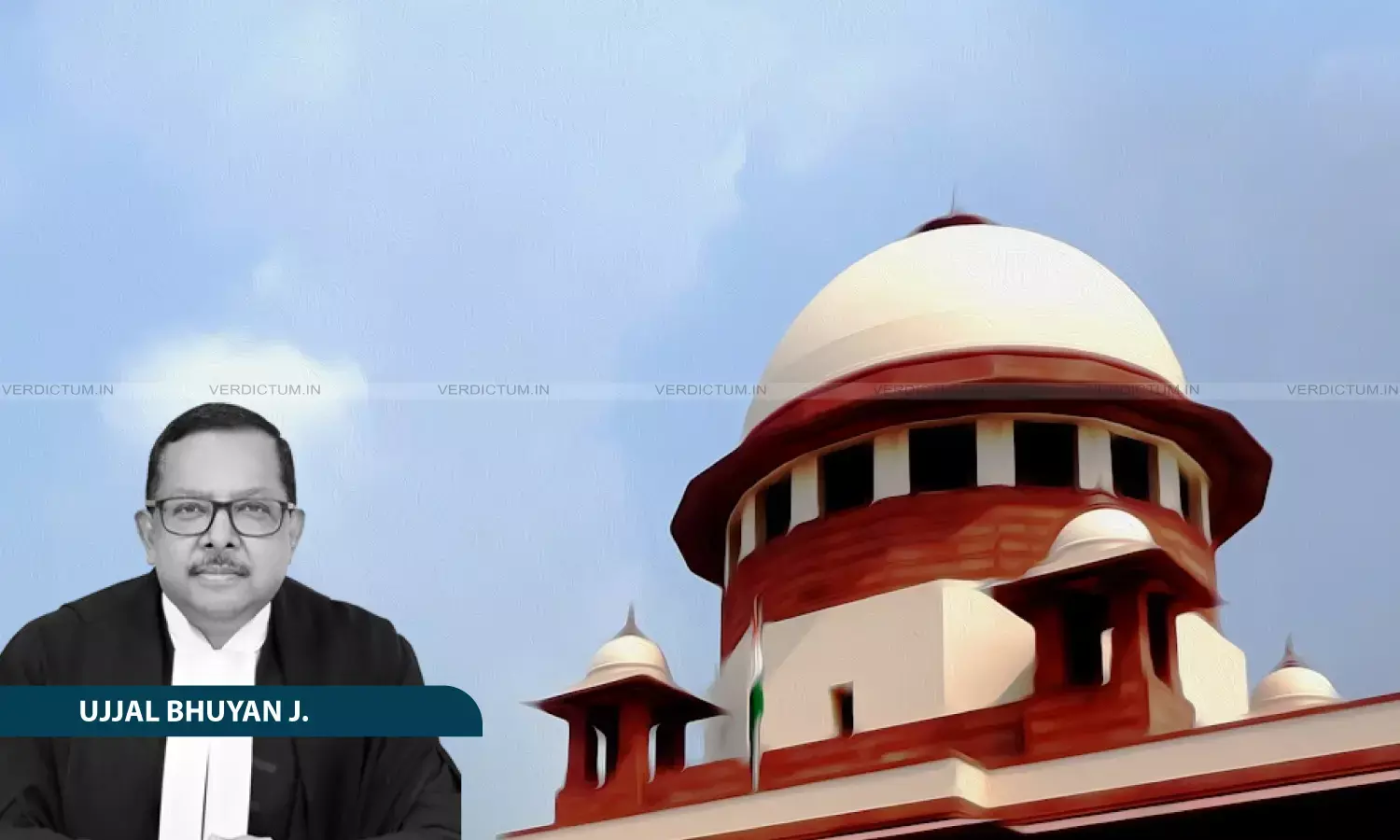Delhi Smog Reminds About Pollution Hazards; Supreme Court Shouldn’t Backtrack On Environmental Jurisprudence: Justice Bhuyan Dissents Vanashakti Judgment Recall
Justice Ujjal Bhuyan said that the review Judgment is an innocent expression of opinion and the same overlooks the very fundamentals of environmental jurisprudence.

Justice Ujjal Bhuyan, Supreme Court
While dissenting over the recall of Judgment dated May 16, 2025 passed in the case of Vanashakti v. Union of India (2025 INSC 718), Justice Ujjal Bhuyan remarked that the Supreme Court should not backtrack on the sound environmental jurisprudence.
The three-Judge Bench of Chief Justice of India (CJI) B.R. Gavai, Justice Ujjal Bhuyan, and Justice Vinod Chandran was deciding a Review Petition filed by the Confederation of Real Estate Developers of India (CREDAI), seeking recall of the said Judgment and final Order.
Justice Ujjal Bhuyan observed, “I would like to painfully observe that the deadly Delhi smog reminds us everyday about the hazards of environmental pollution. Supreme Court as the highest constitutional court of the country has the duty and obligation under the Constitution of India and the laws framed thereunder to safeguard the environment. It cannot be seen backtracking on the sound environmental jurisprudence that has evolved in this country, that too, on a review petition filed by persons who have shown scant regard for the rule of law.”
He said that the review Judgment is an innocent expression of opinion and the same overlooks the very fundamentals of environmental jurisprudence.
“… the very positing of the question, as posed in the review judgment, whether it would be in the public interest to demolish all such projects and permitting the money spent from the pocket of public exchequer to go in the dustbin, is itself erroneous. Such a question does not arise at all”, he noted.
Justice Bhuyan was of the view that since the Review Petitioner itself has said that its members had applied for Environmental Clearance (EC) under the 2021 Office Memorandum (OM), at the first instance, such EC cannot be granted in terms of the 2017 Notification after April 13, 2018.
“Therefore, the question of consideration of such projects for EC does not arise at all. More particularly, it does not lie in the mouth of law violators to advance such a kind of justification to sustain the illegality which goes to the root”, he added.
He further said that the members of the CREDAI (Review Petitioner) are not entitled to any benefit under the 2021 OM, even if the same is assumed to be valid.
“It is unfortunate that a false narrative is being created pitting environment against development. It is a completely untenable binary in as much as ecology and development are not adversaries. Both are part of the constitutional construct of sustainable development. At the cost of repetition, it is reiterated that there is no antinomy between development and environment. Unfortunately, Electrosteel, Pahwa and D. Swamy on which reliance is being placed by the review judgment only seeks to reinforce the above stereotype”, he also remarked.
Justice Ujjal emphasised that the principle of non-regression needs to be brought into play because today environmental law is facing a number of threats, such as, deregulation, movement to simplify and at the same time attempting to diminish environmental control projecting environmental legislation as being too complex and an economic climate which favours ‘development’ at the expense of protection of environment.
“With respect I am unable to persuade myself to agree to the line of reasoning and conclusions reached by the learned Chief Justice. According to me, no case for review has been made out and, therefore, the review petition is liable to be dismissed”, he said.
Moreover, Justice Bhuyan noted that precautionary principle is the cornerstone of environmental jurisprudence and polluter pays is only a principle of reparation.
“Precautionary principle cannot be given a short shrift by relying on polluter pays principle. The review judgment is a step in retrogression”, he concluded.
Cause Title- Confederation of Real Estate Developers of India (CREDAI) v. Vanashakti and Another (Neutral Citation: 2025 INSC 1326)


